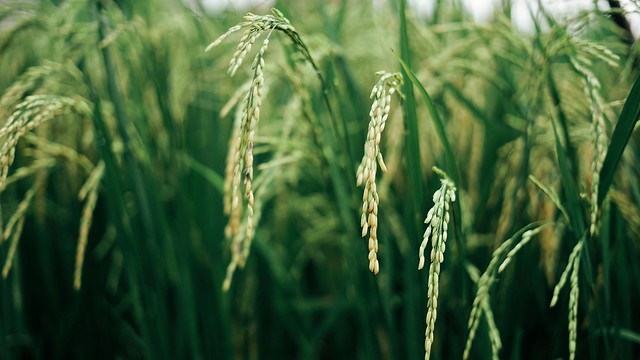Auburn researcher: Phosphorus shortage could affect worldwide crop yields
Article body
While phosphorus is an essential element for plant metabolism and growth, its future supply under elevated levels of atmospheric carbon dioxide is uncertain. A shortage of this important nutrient could lead to lower crop yields, especially in poorer countries.
“Our research suggests that a reduction in rice yields could be particularly acute in low-income countries under future CO2 scenarios without the input of additional phosphorus fertilizers to compensate, despite the potentially reduced global risk for phosphorus pollution,” said Dengjun (Kevin) Wang, an assistant professor of aquatic chemistry in the Auburn University College of Agriculture’s School of Fisheries, Aquaculture and Aquatic Sciences.
Wang is one of the co-authors of a paper recently published in the journal Nature Geoscience that examines phosphorus measurements in long-term experiments. Nature Geoscience is a monthly journal dedicated to publishing top-quality earth sciences research from all disciplines within the geosciences.
“We looked at measurements of phosphorus concentrations from two long-term (15 and nine years) rice free-air carbon dioxide enrichment, or FACE, experiments,” Wang said. “Although no changes were observed in the initial year of the experiments, by the end of the experiments, soil-available phosphorus had declined by more than 20% (26.9% and 21.0% for 15 and nine years, respectively).
“The gathered data were precious and highly convincing since one can rarely find field data in such a big FACE experimentation with decades-long monitoring history in the literature.”
The research also suggests that phosphorus reduction can be explained by the production of soil organic phosphorus that is not readily available by plants, as well as by increased removal through crop harvest.
“Our findings further suggest that increased transfers of plant-available phosphorus from biological, biochemical and chemical phosphorus under anthropogenic changes are insufficient to compensate for reductions to plant-available phosphorus under long-term exposure to elevated CO2,” Wang said. “This may not be a good sign for us, considering the projected global warming with elevated CO2 level in the atmosphere.”
Related Media
Media interested in this story can contact Communications Director Preston Sparks at (334) 844-9999 or preston.sparks@auburn.edu.
Auburn University is a nationally ranked land grant institution recognized for its commitment to world-class scholarship, interdisciplinary research with an elite, top-tier Carnegie R1 classification, life-changing outreach with Carnegie’s Community Engagement designation and an undergraduate education experience second to none. Auburn is home to more than 30,000 students, and its faculty and research partners collaborate to develop and deliver meaningful scholarship, science and technology-based advancements that meet pressing regional, national and global needs. Auburn’s commitment to active student engagement, professional success and public/private partnership drives a growing reputation for outreach and extension that delivers broad economic, health and societal impact.





